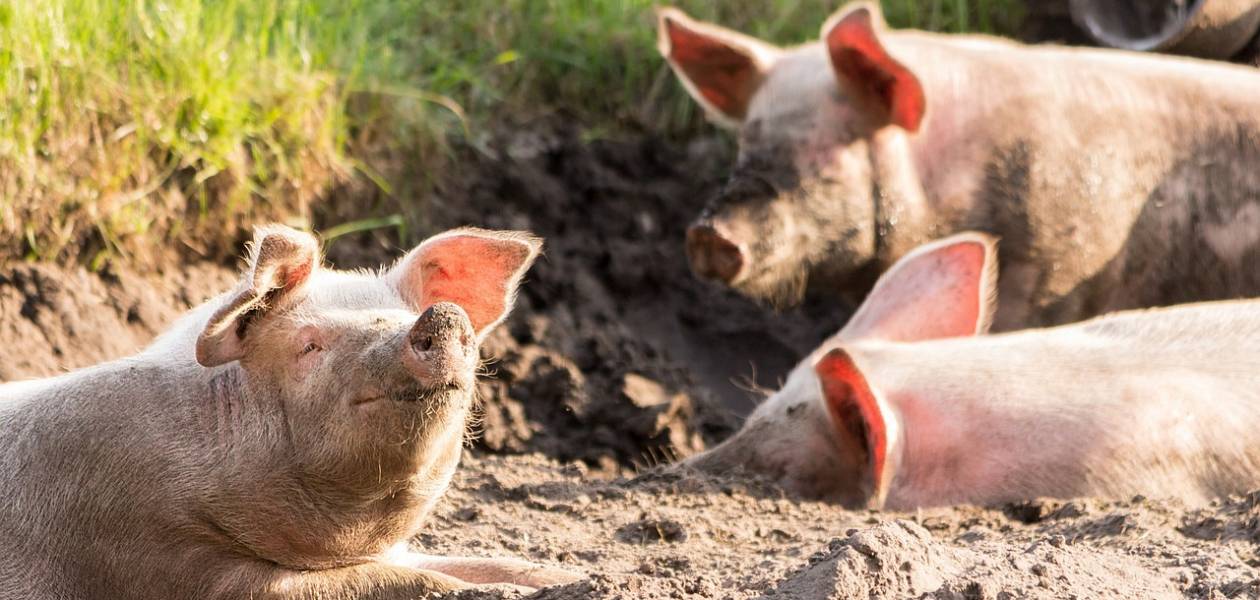
Next week the European Parliament’s Committee on Environment, Public Health and Food Safety (ENVI) votes on the proposal for the revised Industrial Emissions Directive (2010/75/EU), commonly called ‘IED’. The debate around the revision shows that EU animal farms have intensified during the past decade to bigger farms and more intensive rearing of animals.
The IED controls emissions from the largest industrial installations in the EU, including large pig and poultry farms. Any installation controlled by the IED is forced to reduce emissions and needs a permit to operate. The EU agricultural sector is responsible for half of the methane emissions, a powerful greenhouse gas, and for ⅔ of the pollution from ammonia emissions. The EU is currently not on track with reducing its emissions and it is necessary to address more of the large livestock farms.
The European Commission’s proposal for a revision of the Directive seeks to bring the IED in line with EU’s climate targets, the Zero Pollution Action Plan and the Global Methane Pledge (pledging to reduce methane emissions by 30% by 2030). In addition to large pig and poultry farms, the Commission proposes that the IED should also cover cattle and lower the threshold to cover farms with 150 or more Livestock units (LSU). 150 LSU corresponds to, for example, a large farm with 500 pigs, or 150 dairy cows, or 10,700 laying hens or 21,400 broiler chickens.
A threshold of 150 LSU would cover the largest commercial cattle farms in the EU, and increase the coverage of intensive pig and poultry farms. The new proposal will increase the IED’s coverage from 18% to 60% of emissions of ammonia from cattle, pigs and poultry, and extend the coverage from 3% to 43% of methane emissions. This would help the EU achieve its climate commitments and help improve air and water quality.
The proposal has been criticised for affecting a larger proportion of farms than initially foreseen.
The debate surrounding the proposal is illustrative of another important issue affecting the EU: the intensification of animal farming. In fact, even though the proposal will affect significantly fewer farms than originally planned, the relative number of farms (i.e. the percentage) is higher, as farms have become larger with more intensive breeding and the smaller farms have declined.
The debate also reflects how the animal industry does not bear the true costs of its production. For example, the new threshold of 150 LSU would cover 135.000 farms (according to data from 2020). The cost for the farms is estimated to be around 2.400 euro on average per farm per year while the emissions reduction will come with human health benefits of 5.5 billion euros per year, according to Commission figures. Given the large ‘hidden’ costs that intensive animal agriculture has for the environment, public health and animal welfare, the sector should not be exempted from the ‘polluter pays’ principle.
The Commission’s proposal runs the risk of being watered down by the European Parliament and the Council by increasing the threshold or removing cattle from the scope. As the Parliament’s Committee on Environment, Public Health and Food Safety votes on the proposal next week, Eurogroup for Animals calls on the Members of the European Parliament to honour the EU’s commitments to the climate targets, the Zero Pollution Plan and the Global Methane Pledge and uphold the proposed threshold of 150 LSU for cattle, pig and poultry.
Sources : Eurogroup for Animals
Posted on 2023-05-20 16:32








Comments